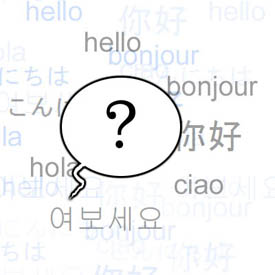
 It’s long been said that Britain and America are nations separated by a common language. And it’s those uncommonalities which are having their affect on me.
It’s long been said that Britain and America are nations separated by a common language. And it’s those uncommonalities which are having their affect on me. I consider myself bilingual. No, it doesn’t mean that. Wash your mouth out and buy a dictionary. I speak two languages—English and American. The extent to which American-English and English-English go off in different directions can be quite shocking. I’m pretty fluent in American these days. I use and say the words just like Americans do. I pronounce lever the same way I was say `feather’, and not with a hard E. I use American phrases. I know not to go into a Starbucks and ask for “a spot of tea,” because I’ll end up with a tea stain on a napkin. I ask for directions to the restroom and not the toilet. I mispronounce Worcestershire sauce which kind of sounds like I’m doing an impression of leaves being blown in the wind. I’ll even toss in the occasional “Yee Hah!” to express happiness. I do all this so that I can be understood by my fellow Americans and not suffer the indignity of a blank stare after I’ve said something. Americans are lovely people but they don’t do well with interpreting other people’s lexicons. It’s very much of a no-go situation. Say it their way or forever be stuck in the doorway of the moment unable to move forward. So I make concessions and an effort to be understood, although I don’t do the accent. I’m only willing to go so far.
As I stare down the barrel of my 15th anniversary in the US, I’m hitting a snag language-wise. I’m kinda forgetting which words are the English version and which are the American. The word oregano is one such word that is pronounced totally differently. I learned that to my embarrassment many years ago while trying to buy herbs for a recipe. The other week, I totally blanked on which pronunciation was the American way and which was the English way. I didn’t have Julie with me and I was stuck in the moment as my mental hard drive crashed and rebooting failed to help. I stood in the middle of a store saying oregano over and over and not having a clue if what I was saying meant anything to anyone.
This isn’t the first linguistic brain-fart I’ve suffered. It happens a lot when I’m writing. As I flit between stories featuring American and English characters, I sometimes get confused which words (especially slang words) are English in origin and which are American. I have to send emails to friends and spring a word or phrase on them and ask them if it means anything to them. I called my mum the other week to help me out with this issue and said, “If I were to call you a douchebag, what would you say?” Apparently, she had plenty to say which could be understood in any language. Maybe I should have started the conversation with more of a preamble. Another lesson learned.
I’m now facing a horrible situation. I’m losing a part of my Englishness. I’m working so hard to speak American, I’m losing my own heritage. Worse still, it’s not like I’m making a full transmogrification into a full-blooded, stars and stripes American. I’m stuck somewhere in the middle, neither one thing nor the other. I feel like some failed science experiment, trapped in a nether state between one form and another. Linguistically speaking, I no longer speak American-English or English-English, but a nasty hybrid that can only be termed as Simon-English or Simonese. While Simon-based languages might sound exotic, no bugger can understand a word of it. This is no way to go through life.
As time goes on, I can only see this problem worsening and a meltdown is inevitable. Like most celebrities, I’ll have to go to rehab, but for me it will be language rehab (coming to VH1 this fall/autumn—see I’m doing it again). I’ll have to detox and learn English all over again, but it’s only a Band-Aid solution. Give it another ten years and I’ll be in the same position again.
I do see a possible solution and that’s just to give up English in all its forms altogether and learn a completely new language—like Spanish.
Ay, Dios mio! Muy peligroso.

